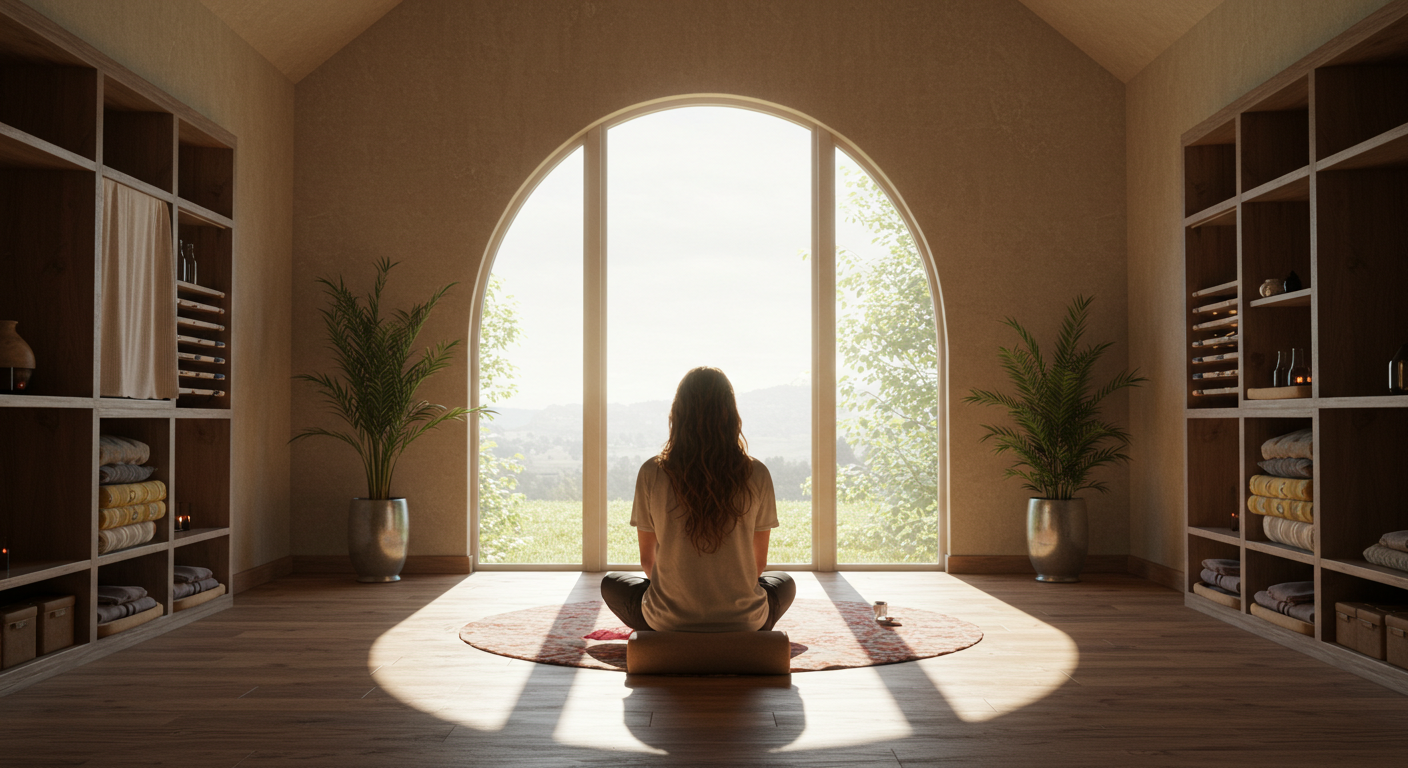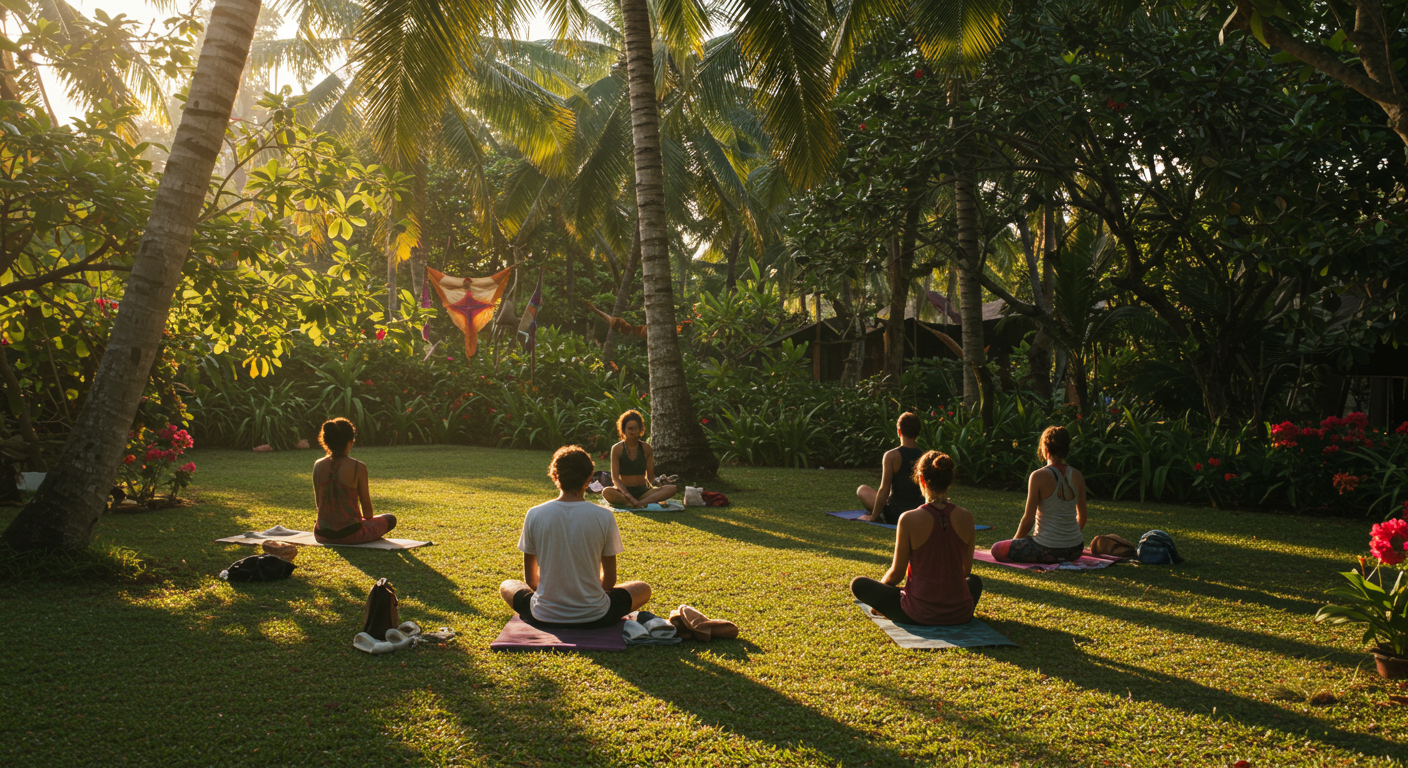Luxury Psychedelic Retreats: The Rise of High-End Healing Tourism in 2025
The wealthy have always had their escape routes—private islands, exclusive spas, meditation centers tucked away in mountain ranges. But 2025 has brought something different to the luxury wellness market. Psychedelic retreats, once the domain of budget backpackers and spiritual seekers willing to rough it in Peruvian jungles, have gone upscale. Now the global elite can experience psilocybin mushrooms, ayahuasca, or ketamine in settings that rival five-star resorts, complete with infinity pools, gourmet organic meals, and private rooms overlooking pristine beaches or rainforests.
This isn't your parents' counterculture. The modern luxury psychedelic retreat industry represents a curious marriage of ancient shamanic traditions and contemporary amenities. Guests at these centers might spend their morning in a ceremony led by Indigenous healers, their afternoon getting a massage, and their evening dining on farm-to-table cuisine. The question isn't whether this market exists—it clearly does, and it's growing rapidly. The question is what happens when powerful mind-altering substances become just another luxury commodity.
Why People Turn to Psychedelic Retreats
Traditional therapy, even with the best practitioners, can take years. Pharmaceutical antidepressants work for some but leave roughly 30 percent of patients diagnosed with depression without relief. High-achieving professionals—CEOs, tech executives, creative directors—increasingly see psychedelics as a shortcut to breakthrough moments that might otherwise take a decade of conventional treatment to reach.
Research has provided scientific backing for what Indigenous cultures have known for millennia. Studies from Johns Hopkins University found that psilocybin, combined with psychotherapy, can alleviate depression symptoms for up to a year after treatment. Other research suggests these substances can help with anxiety, PTSD, and addiction. For people accustomed to optimizing every aspect of their lives, psychedelics offer the promise of optimizing consciousness itself.
But there's an irony here that deserves examination. Many of the tech leaders whose companies have contributed to rising rates of anxiety and depression are now seeking healing through psychedelics. They're paying premium rates to temporarily disconnect from the digital world they helped create. Steve Jobs famously said taking LSD was one of the most important experiences of his life. Today's Silicon Valley elite follow that tradition, but they do it at boutique retreats where facilitators monitor their vital signs and integration coaches help them process the experience afterward.
Where the Law Creates Opportunities
The Global Psychedelic Map
Geography determines everything in the world of psychedelic retreats. Several countries have created legal spaces—whether through explicit permission or convenient loopholes—that allow these centers to operate:
Jamaica has become a hotspot because psilocybin mushrooms exist in a legal gray area, openly sold and consumed without prosecution.
The Netherlands offers a curious loophole: while psilocybin mushrooms are illegal, psilocybin truffles remain perfectly legal.
Mexico permits the sacramental use of psychedelics, creating space for retreats offering everything from psilocybin to ibogaine.
Costa Rica, Peru, and Brazil allow ayahuasca ceremonies, drawing from deep Amazonian shamanic traditions.
These legal distinctions create a global marketplace where seekers can shop for experiences based on their preferred substance and setting. Want to work with mushrooms while lounging at a Jamaican beach resort? Multiple centers offer precisely that. Prefer the European countryside? Retreats operate in the Dutch landscape, providing settings that participants describe as similar to a year of therapy compressed into one intense week.
What Happens Inside These Retreats
The rise of luxury psychedelic retreats has created an entire ecosystem of specialized roles. Retreat centers employ traditional shamans alongside licensed therapists, integration coaches, yoga instructors, massage therapists, and trauma specialists. Some centers require extensive medical screening before accepting guests, rejecting roughly 10 percent of applicants who might face elevated risks. Others work exclusively with Indigenous practitioners who bring generations of tribal knowledge to the dosing and ceremonial aspects.
Ayahuasca retreats represent perhaps the oldest corner of this market. The DMT-rich brew, made from Amazonian plants, has been used ceremonially by South American tribes for thousands of years. Centers like Rythmia in Costa Rica have served more than 17,000 guests since 2016, many reporting life-changing experiences. The Ayahuasca Foundation operates in Peru's Amazon rainforest, where guests work with Shipibo healers while staying in accommodations that would have seemed impossible in this remote location a generation ago.
Psilocybin retreats have proliferated in Jamaica, where the legal situation creates an unusually permissive environment. MycoMeditations has guided more than 2,000 guests through over 6,000 psilocybin therapy sessions, drawing on protocols developed at Johns Hopkins. Each program includes multiple ceremonies plus extensive preparation and integration work. The emphasis falls heavily on safety and professionalism—characteristics that appeal to risk-averse clients seeking legitimate therapeutic experiences.
The Science Behind the Experience
The scientific case for psychedelics has strengthened considerably over the past two decades. Research institutions, including Johns Hopkins, NYU, and Imperial College London, have produced studies showing measurable benefits. The FDA has designated psilocybin a "breakthrough therapy" for depression, fast-tracking research and development. Similar findings have emerged for MDMA in treating PTSD and ketamine for treatment-resistant depression.
Roland Griffiths, founding director of the Johns Hopkins Center for Psychedelic and Consciousness Research, has been instrumental in this renaissance. Yet even he expresses caution about the retreat industry. The research shows benefits occurred in carefully controlled clinical settings with extensive screening and trained therapists present throughout. The translation from research environment to luxury retreat inevitably introduces variables that can't be fully controlled. "The retreat center question is, buyer beware," Griffiths has warned.
Dr. Collin Reiff, an assistant professor of psychiatry at NYU, echoes this concern. Psychedelics represent a paradigm shift in treating mental health conditions, which makes them genuinely exciting. But that excitement carries risks. Psychedelics can trigger psychosis or long-term mental health problems, particularly in people with predispositions to certain conditions. This creates a difficult situation because many people seeking psychedelic therapy are already struggling with depression or anxiety.
When Luxury Doesn't Mean Safety
The retreat industry doesn't advertise its failures, but they exist. In 2019, a 29-year-old British woman attended an ayahuasca retreat in Peru, developed mental health issues after returning home, and died by suicide shortly after. A 2015 incident at an Amazonian retreat involved a tourist who said he stabbed another participant to death in self-defense. Three years later, a shaman and tourist were killed in a double murder at a different Peruvian retreat. Sexual assaults have been reported at various centers, with some women saying they were molested by shamans while in extremely vulnerable states.
These horror stories remain statistical outliers in an industry that has served tens of thousands of people. But they illuminate real risks that luxury amenities can't eliminate. Psychedelic experiences produce profound vulnerability. They can surface deeply buried traumas. They can temporarily dissolve the ego defenses that normally protect psychological stability. In that state, the presence of predatory or incompetent facilitators creates obvious dangers.
Some luxury retreats have responded by implementing extensive safety protocols: medical intake forms, on-staff doctors reviewing applications, facilitators maintaining close monitoring ratios, and background checks verifying credentials. But these precautions cost money, and not all retreats invest equally in safety infrastructure. The lack of industry-wide standards means quality varies enormously.
What Comes Next
The trajectory seems clear: more locations, more substances, more integration of scientific protocols with traditional practices. Oregon has legalized therapeutic psilocybin, creating the first fully above-board industry in the United States. Other jurisdictions are moving toward decriminalization or regulated legalization. Australia recently approved MDMA and psilocybin for specific therapeutic uses.
This legal evolution will likely push the industry in two directions simultaneously. Mainstream medical clinics will begin offering psychedelic therapy, potentially bringing down costs. At the same time, luxury psychedelic retreats will differentiate themselves by offering experiences that go beyond mere medical treatment—exotic locations, extended programs, and environments designed for maximum comfort.
The question isn't whether psychedelics will become part of the mental health treatment landscape. The research is too strong, the testimonials too compelling. The question is whether access will depend on need or wealth, on suffering or status. The luxury psychedelic retreat industry has demonstrated that these substances can be used relatively safely when proper precautions are taken. It has helped destigmatize psychedelics and brought them into conversation among educated professionals. Those contributions have value. But the mushrooms don't care whether someone is rich or poor. The healing doesn't require an infinity pool. What matters is the medicine, the guidance, and the willingness to face whatever emerges. Everything else is just packaging.


